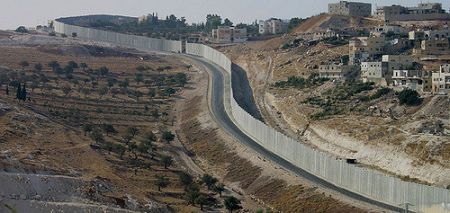The status of Jerusalem is one of the most contentious issues in international relations. Different political and legal definitions make pronouncements on sovereignty over Jerusalem difficult. US President Donald Trump's decision has therefore not improved the situation, according to many analysts. The announcement that the US embassy is moving from Tel Aviv to Jerusalem, with Washington officially recognising Jerusalem as the Israeli capital, caused a stir. Israel seems pleased, the Palestinians are furious and the international community is upset. But how much weight does this decision carry? Most events do not take place in a vacuum. They fit into a historical process. What about this for the recognition of Jerusalem?
Corpus Separatum
Jerusalem's current status is complex. Israel claims it as its indivisible capital. The Palestinian Authority sees East Jerusalem as its Israeli-occupied capital. The rest of the international community calls Jerusalem a Corpus Separatum. Jerusalem's special status stems from United Nations (UN) General Assembly Resolution 181 of 1947. At the end of the period of the British mandate over Palestine, the United Nations came up with a plan for the partition of the mandate area. The General Assembly approved the plan in which the mandate area would be divided into a Jewish state, a Palestinian state and a neutral international area around Jerusalem.
The plan was never implemented. The newly proclaimed state of Israel captured West Jerusalem, while Transjordan annexed East Jerusalem during the Israeli-Arab War (1948). On this, West Jerusalem became Israel's capital. East Jerusalem was added during the Six-Day War (1967), in which Israel defeated Jordan. Despite the fact that Resolution 181 was never implemented, it did act as the legal framework for Jerusalem's international status.
The US position
De jure East Jerusalem is therefore an occupied city. Israel has only de facto held full sovereignty over Jerusalem since 1967. Israel's parliament, the Knesset, passed a law in 1980 that officially included this in the country's Basic Law. The UN Security Council condemned this decision in Resolution 478. Until then, the United States (US) supported the international status of Jerusalem as enshrined in Resolution 181. Nevertheless, Washington abstained from voting on Resolution 478. Secretary of State Emund Muskie made the US position on the status of Jerusalem more problematic by not clarifying what the US position was. During Jimmy Carter's presidency (1977-81), US neutrality on status began to be questionable.
The ambiguity surrounding the US position on the issue grew. President Reagan opposed official recognition of Jerusalem as the capital, but was unwilling to condemn the Israeli position. In the 1980s, the US seemed increasingly comfortable with the existing situation. The US Congress became increasingly enthusiastic about the prospect of official recognition. In 1995, the Republican-dominated Congress passed the Jerusalem Act to. In doing so, the US legislature recognised de jure Jerusalem as the capital of Israel. Officially, this decision would be ratified with the relocation of the US embassy from Tel Aviv to Jerusalem. Only in the US, the final responsibility for moving an embassy lies with the executive branch. Despite the fact that President Clinton was a supporter of the Jerusalem Act, he refused to move the embassy for fear that the peace process would fall apart. George W. Bush promised in 2000 that he would, but the difficult foreign situation prevented this during his eight years. The US maintained the appearance of neutrality in the conflict around the city.
Historical process
As long as both Israel and the Palestinian Authority claim the city as their capital, it will remain a major issue in the Israeli-Palestinian conflict. With Trump's decision, the US is definitively renouncing its narrative of neutrality. Nevertheless, it is the outcome of a decades-long process. Since 1980, the US was already moving towards de jure recognition of Jerusalem. The city's status quo hardly seems to have changed. The international community still sees Jerusalem as an occupied city. The Palestinian Authority claims East Jerusalem, while Israel claims the entire city. The US continues to support Israel. It is the outcome of a historical process and, due to the nature of the conflict and the emotions, a shocking event, but the decision is not totally unexpected. Trump has only confirmed, below the line, something that has actually been US policy for decades.
By: Dennis den Hartog
Photo: Flickr




